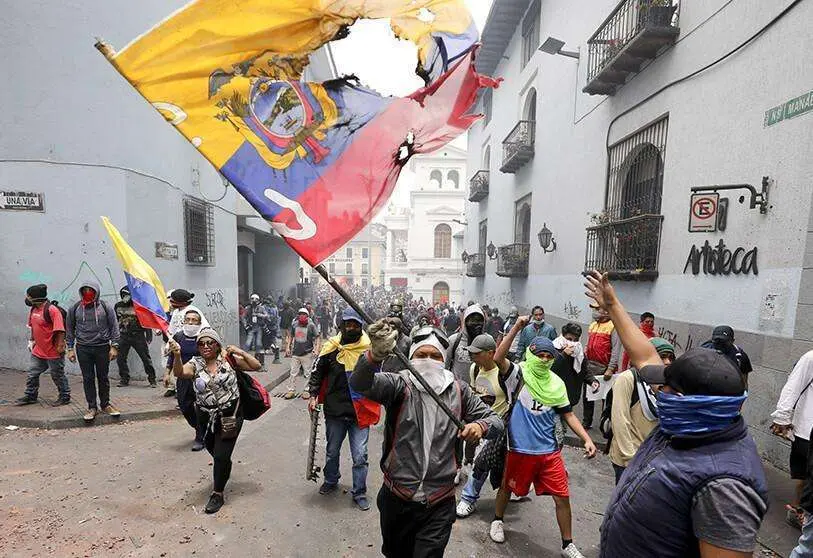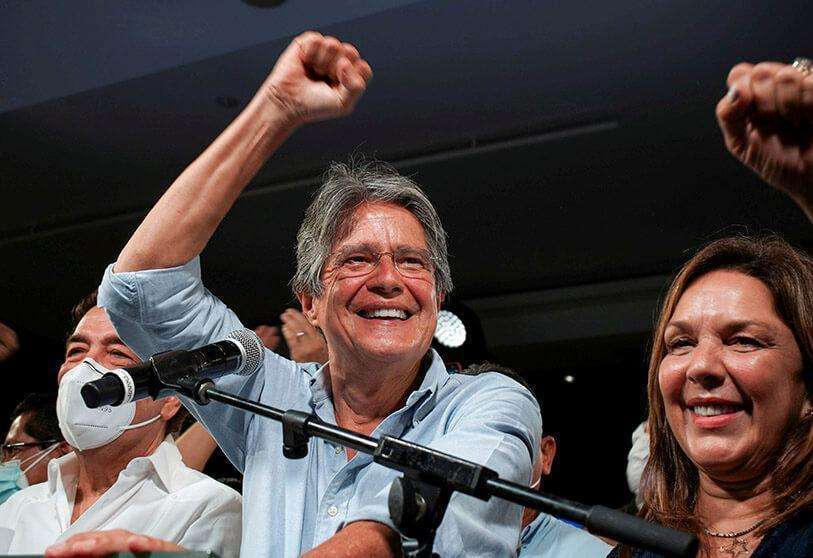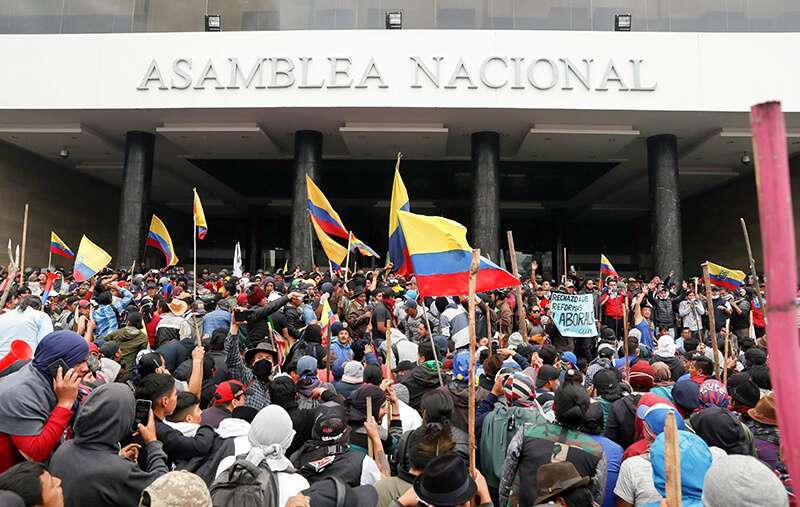Ecuador combats growing insecurity in the country through a state of emergency

President Guillermo Lasso declared a state of emergency for sixty days throughout the nation through the issuance of an executive decree.
This government order is a result of the situation in the country, where high levels of crime threaten citizen security, especially in the provinces of El Oro, Guayas, Santa Elena, Manabí, Los Ríos, Esmeraldas, Santo Domingo de los Tsáchilas, Pichincha and Sucumbíos, where police actions have required military support to maintain order.
By establishing a state of emergency, the government has shielded the public forces from possible threats that may arise from carrying out their duties. President Lasso announced that the agents will take actions such as controlling weapons and drug trafficking, as well as carrying out inspections and constant patrols, affirming that, given the current situation, the patrols "will be felt strongly in the streets".

The exceptional measure is aimed at controlling the circumstances that have arisen, "re-establishing peaceful coexistence and public order". The order, signed in decree 224, will allow the Armed Forces to be transferred to provinces where citizens have felt the brunt of crime.
The national security plan that the government has designed includes measures to protect members of the security forces, defending those police or military who may be sued by citizens in the framework of security actions, "the law must intimidate the criminal, not the police", explained the president.
"We will create the Public Force Legal Defence Unit, an entity that will be dedicated exclusively to the protection of all members of the police or armed forces who are sued for doing their duty," said Lasso.

The declaration of the state of emergency comes at a time when homicides and violence are rising dramatically in the Ecuadorian country. According to data from the Interior Ministry, between January and August this year, the country recorded 1,427 murders, 55 more than in 2020.
The situation in the coastal city of Guayaquil is particularly worrying; three weeks ago, at least 119 inmates died in a prison riot that was attributed to rival factions linked to Mexican drug trafficking organisations. According to the president, in Guayas province alone, more than 70 per cent of violent crime is related to drug trafficking.
Drugs have an impact on the security of Ecuador, which has been labelled as a transit nation for drug trafficking activity. However, as the government points out, drug use has also increased within the country. "In the streets of Ecuador there is only one enemy, drug trafficking", which is the driving force behind other criminal activities.

The Ecuadorian president pointed out that the lack of opportunities for young people has led many of them to turn to drugs. As a solution, Lasso assured the formation of an inter-institutional committee of all the Ministries on the social front and the Secretariat of Human Rights, with the aim of preventing and reintegrating drug addicts into society.
"We want a safe Ecuador so that we can live in peace", because "without security there is no development", said Lasso. In this way, he urged all citizens to work together to "defeat the common enemy".
Latin America Coordinator: José Antonio Sierra.








